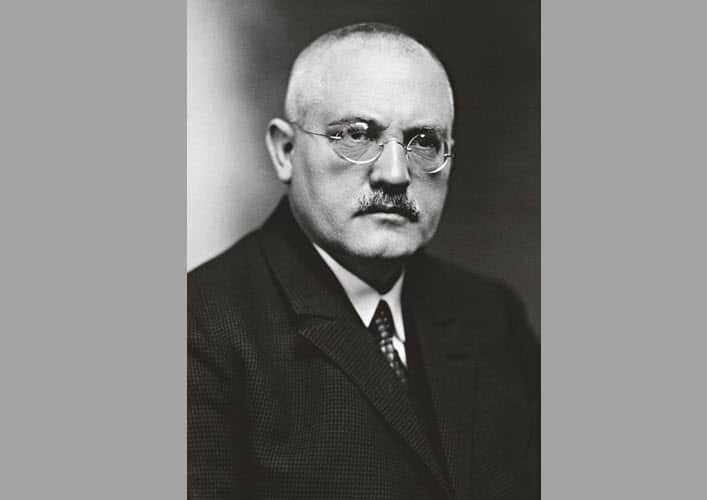Chemical Innovator: Carl Bosch’s Legacy in Industry and Science

Carl Bosch (27 August 1874 – 26 April 1940) was a German chemist and industrialist who is best known for his work on the Haber-Bosch process. He was awarded the Nobel Prize in Chemistry.
Life and Career
He was born on 27 August 1874, in Cologne, Germany. He studied chemistry at the Technical University of Charlottenburg in Berlin, Germany, where he received his Ph.D. in 1899 under the supervision of August Wilhelm von Hofmann. While studying at the university, he also worked as an assistant to the chemist Carl Liebermann.
After completing his studies, Bosch joined the chemical company BASF (Badische Anilin- und Soda-Fabrik) in 1899 as a chemist, where he worked his way up through the company’s ranks to become its CEO in 1919.
He is best known for his work on the development of the Haber-Bosch process, a method for producing ammonia from nitrogen and hydrogen. This process revolutionized agriculture by enabling the large-scale production of fertilizer, which has been critical in the production of food for a growing world population.
He was also instrumental in the development of the high-pressure chemical industry, which involves carrying out chemical reactions at high pressures and temperatures. This method is used in the production of many important industrial chemicals, including methanol, which is used as a feedstock for the production of a wide range of products.
In addition to his work in chemistry, Bosch was a successful industrialist, serving as the chairman of the board of the German chemical company IG Farben.
He died on 26 April 1940, in Heidelberg, Germany.
Award and Legacy
Bosch was awarded the Nobel Prize in Chemistry in 1931 for his contributions to the development of high-pressure chemistry, which was essential to the success of the Haber-Bosch process.
He was awarded numerous other honors during his lifetime, including the Elliott Cresson Medal from the Franklin Institute in 1928 and the Wilhelm Exner Medal in 1933.
His legacy extends beyond his individual accomplishments. His work on the Haber-Bosch process was instrumental in the development of the chemical fertilizer industry, which has played a key role in increasing agricultural productivity and feeding the world’s population. His contributions to the high-pressure chemical industry also helped to pave the way for the large-scale production of many important industrial chemicals.
Overall, Carl Bosch’s work in chemistry and industry had a profound impact on the world, and his legacy continues to be felt today.
Observer Voice is the one stop site for National, International news, Sports, Editor’s Choice, Art/culture contents, Quotes and much more. We also cover historical contents. Historical contents includes World History, Indian History, and what happened today. The website also covers Entertainment across the India and World.

